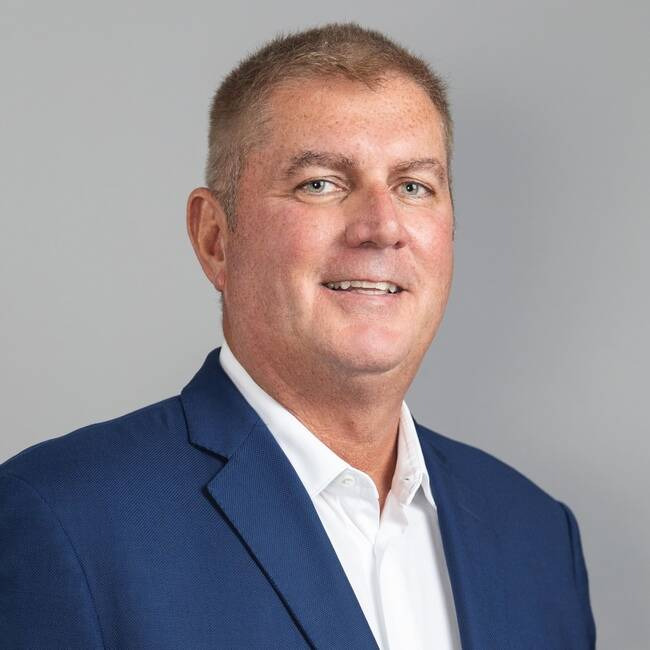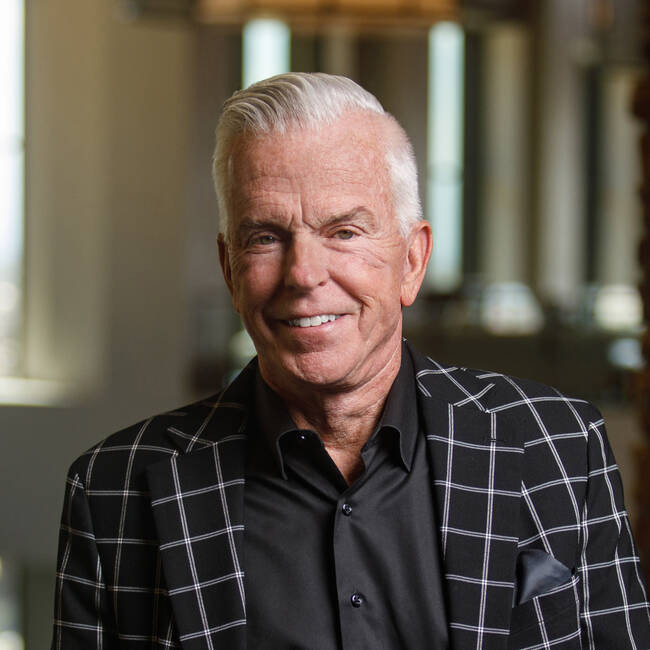10 out of 10 is too low of rating. Presentation and message were awesome!! A speech that I will always remember.

Mark Whitacre
Highest-ranked Executive to become a whistleblower in US History
Profile Links
Fee Range
Please contact us for pricing
Mark Whitacre
Biography
Some of the FBI agents responsible for investigating the ADM price fixing case, used the word hero to describe my actions as a whistleblower. I want to make it very clear that I was certainly not a hero in the ADM case.
Even more surprising is the support for Executive Clemency stems from unlikely sources - several former and active FBI agents (Dean Paisley, Brian Shepard, Bob Herndon and Kate Killham), a former US prosecutor (James Mutchnik), two Canadian prosecutors, and a retired Judge. Several of these officials have worked tirelessly, and continue to, with writing numerous clemency support letters to the U.S. Department of Justice's Office of the Pardon Attorney, to the President of the United States, and to members of the U.S. Senate & Congress. Dean Paisley, who was the FBI supervisor of the ADM case, with me in attendance, even made a presentation to government lawyers in Washington, D.C. in support of a pardon. Even though it normally takes a person decades after their prison release prior to being pardoned, for Ginger and I, the tremendous support from the FBI agents is even more important than a pardon itself. I appreciate greatly the executive clemency support and the public comments from some of the former FBI agents stating that I am a "national hero". I really do, but, make no mistake about it. I am not a hero.
The message is not as simple as: "Is he a hero or not"? It is more complicated than that. This country was built on second chances. This is exactly what I received: a second chance. But first, one has to admit to their mistakes and take responsibility for their actions.
As I have shown, people can do heroic acts and make mistakes simultaneously. Luckily, for me, people can also be forgiven from the very souls they love and cherish the most and be welcomed back into the business world and society with support from the very people who imprisoned them, in my case FBI agents and federal prosecutors. But remember there are many other types of prisons without bars, including ego and greed, which were the first prisons I entered those many years ago.
I made some horrific decisions and broke some serious federal laws. In fact, ego and greed were behind many of these poorly made decisions. Others have said that ultimately the corporate culture of ADM played a primary role in my decision making at the time. Also, not true. These were decisions of my own making. When trying to win so hard that truth and ethics do not matter anymore, then one is in a bad place in his or her life. That is exactly where I was in the early and mid-1990s.
I cannot be held up on high in the hero category like an Erin Brockovich or Jeffrey Wigand of "The Insider." They are true heroes. There is no way to glorify what I did. I was trapped in an FBI investigation - simply that and nothing more. There were so many days when wished I could return to my life before that first confession to the FBI, before that fatal night changed my life and worse yet, before my decisions that altered my families' life so dramatically. Those are certainly not the thoughts of a hero.
In all honestly, the reason this case happened is because of my wife Ginger and the FBI agents. It had very little to do with me. I was a person stuck in the middle of something I had no interest in doing. In hindsight, I wish that I could have come forward and helped the FBI for all the right reasons, but at the time, I simply could not.
I became a whistleblower and an informant because Ginger insisted I come forward and report what I knew. Though she did not understand exactly why price fixing was illegal, she inherently knew it was very wrong. In November 1992, almost two decades ago, two hours before FBI-agent Brian Shepard first visited my home, Ginger forced my hand. She decided firmly that she would tell Brian what she knew, even if I couldn't. She was the sole reason I opened up to the FBI that auspicious night. Ginger is the real whistleblower of this case, not I. If anyone, then she is the national hero.
Had I simply learned from her bravery and honesty, the next decade could have been very different. But along the way, I made mistakes, huge ones. On March 4, 1998, as I stood before Judge Harold Baker and plead guilty to all counts and waived my rights to a fraud trial, despite any good deed derived from my years as an FBI informant, I could not escape the fact that I had still made some very damaging decisions - again not the actions of a hero. I received a nine-year sentence that day. Many people, including the FBI agents, have said the sentence was way too long. But, the courts decided my fate, and I served my sentence.
It is hard for most people to imagine what eight and a half years in federal prison is like. Measuring one's life in prison years is like living in slow motion and not just for me, but for my wife and children. In a sense, we all went to prison. I watched my children grow up in prison camp visiting rooms for almost a decade. I entered prison just before turning 41 and released in December 2006, at age 49. Our youngest son was 6 years old when I started wearing a wire for the FBI; he was 12 when I went to prison, and 21 years old and a junior in college when I was released. I am very fortunate that my family stuck with me those many years. Ginger visited me in prison every weekend and every holiday.
Telling you this is not meant to make you feel sorry for me or to make you think that I hold any anger or hostility toward ADM. My own self-destructive actions were the cause - not ADM. During my time in prison, I had a lot of time to think. My aim was to leave prison better not bitter and the only way toward that goal was to focus on the letter that differentiates these two words "I," not the three letters, "ADM."
I especially want to make it clear that neither ADM nor the people of Decatur, Illinois are bad places because of this two-decade old case. For many decades now, the tens of thousands of hard working employees of ADM have worked loyally and legally to make the company one of the best in the nation. The three employees convicted of wrongdoing, including myself, knew that we were tarnishing the integrity of these hard working employees. We paid the price for it.
So despite what you may read in various FBI media interviews or see about me on the Discovery Channel documentary, Undercover, make no mistake about it. I am not a hero. Young adults entering the business world need to learn from that. I was involved with criminal activity, and I went to prison for almost a decade. No one is above the law, no matter how successful, no matter how wealthy, and no matter how educated. At one time in my life, and at a very young age, I had the world within easy reach. But poor, unethical decision making changed my life forever. My hope is to guard you from the same ill-fate with my story. It is important to ALWAYS do the right thing.
Mark Whitacre
Featured Keynote Program
“When Good Leaders Lose Their Way”
ABOUT THE ETHICS & COMPLIANCE PRESENTATION
Mark Whitacre's presentation has a strong emphasis on corporate culture, ethics and compliance. His topic is an important personal and business ethics lesson about "doing the right thing" and the need to think "long term." His presentation is extremely entertaining as he actively engages his audience about how he wore a wire for the FBI everyday traveling the globe for three years in one of the largest white-collar crime cases in U.S. history. But, his story is also about hope, family commitment, redemption and second chances, and a wonderful example of a family overcoming extreme adversity, against all odds.
His take away messages include:
• the ultimate real-life lesson in personal and business ethics accountability
• ALWAYS doing the right thing
• The danger of making critical decisions in isolation
• the need to think long-term in all of your personal and business decisions
• How the fraud (embezzlement) and price fixing were both concealed for several years. What could the company have done differently today in order to expose the fraud much earlier, and even prevented it?
Mark Whitacre
Featured Book

Mark Whitacre Against All Odds
by Mark Whitacre
Mark Whitacre
Featured Reviews
Frequently Asked Questions
How do I book Mark Whitacre for my event?
- Availability Check: Contact us with your event date and budget to verify if your desired speaker is available.
- Hold Date: We place a temporary "hold" on the speaker's calendar while you finalize internal approval.
- Contracting: We issue a contract outlining the fee, cancellation policy, and event expectations.
- Logistics: Once signed, our event management team handles all travel booking, itinerary, and AV requirements.
Why should I partner with Premiere Speakers Bureau rather than contacting speakers directly?
What makes Premiere Speakers Bureau unique compared to other agencies?
How does Premiere Speakers Bureau's 'Zero Cost Service' model work?
How are speaker fees structured, and what is typically included?
What are the standard policies for speaker travel and expenses?
Mark Whitacre's Featured & Related Topics
Find Similar Speakers Management
Popular Speakers

Earvin “Magic” Johnson

Deion Sanders

Dr. Jessica Kriegel

Dr. Ben Carson

Daymond John

Liz Bohannon

Jon Acuff











